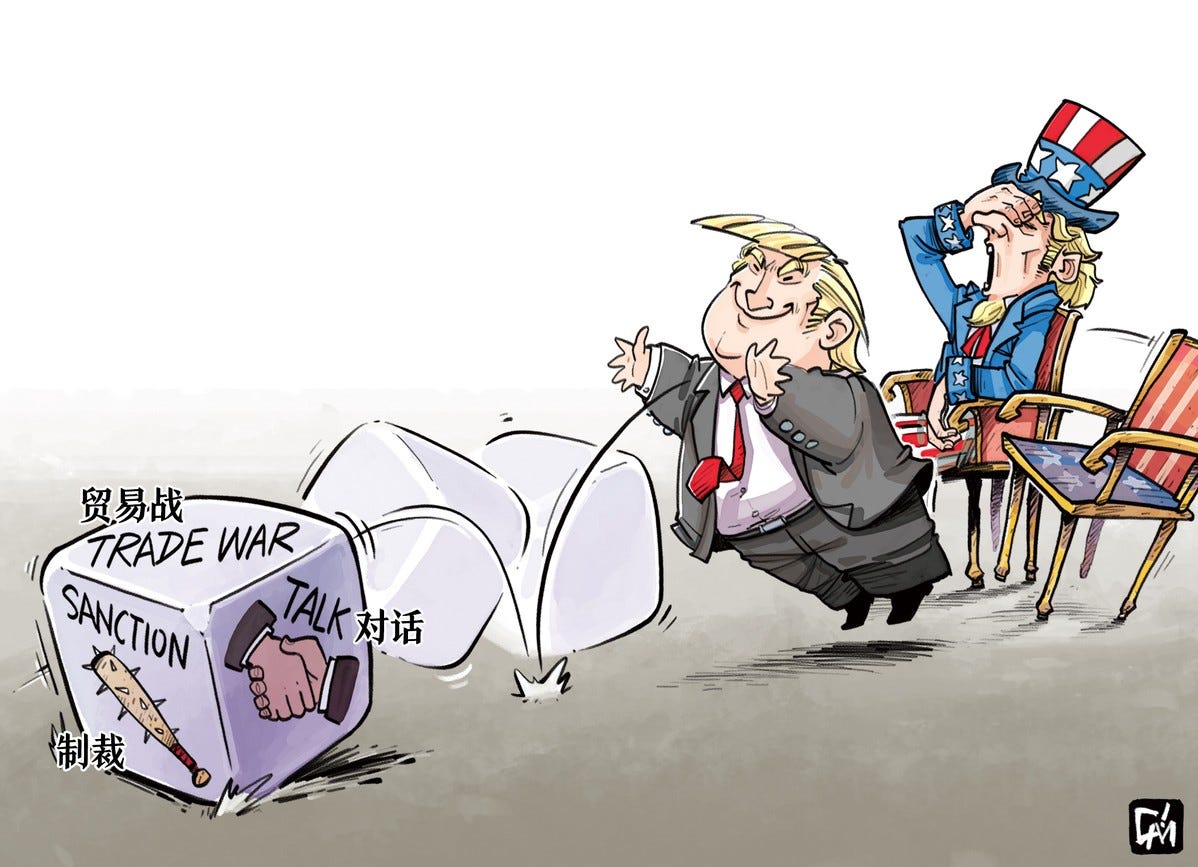On the Global Quest for More Land
the post-WWII diplomatic order is being challenged by competitors, but to what end?
The global order is again challenged by multiple aggressors, signaling the death knell of Pax Americana. Since 1945, there has been a taboo on states annexing/invading the territory of other states—though the fight against rival ideologies blurred that fact up until today, the rule especially stands in today’s global, political moment. Developments in the years following the continued fracturing of American global prestige under the Trump administration have put pressure on the US to fulfill its historically central role in global security. Events of the last few decades, the Chinese economic re-orientations and the transformation of the Soviet Union, have revealed themselves not to be signs of the fall of Communism as previously thought, but watershed moments in the effort among post-Communist economies to combine their state’s power with the economy to gain economic supremacy—the next best thing to ruling an world empire, or the new dominion. Russia and China have become masters at playing the diplomacy game to our detriment, using our position atop the global security hierarchy to manipulate concessions for their respective governments. The logic of rewarding gradual concessions to troublesome nations currently prevails over all-out warfare between rival power, as it should, but placation is a temporary settlement in the long run. Eventually, the intentions behind these moves will need to be addressed.
The Trump government is not entirely to blame for the shambolic state of foreign affairs, but its insistency on a dual-course of either reverting to a pre-WWI isolationism or bold, ardent nationalism has left us looking like a bunch of schmucks. The political enemies of the United States have chosen now, a time that the country’s political system is at its most divided in decades, to use the threat of force to win concessions for their aims. Chinese aggression has centered predominately on issues of land and global prestige. Beijing’s brutal act of repression in Hong Kong, a certainty after the installation of a puppet parliament in 2019, has not been answered by the West. Compounding this is the power that the Chinese hold over Western business entities. It says quite a bit when Jaime Dimon can be squeezed for two separate apologies for a joke criticizing the CCP, even a joke made in the US. From the moment that DreamWorks animated the CCP’s “nine-dash line” onto a map in a kids film, it has been obvious the amount of power China has wielded toward anyone desperate to enter their markets. There are a few reasons why Western powers should address the actions of the CCP, the most pressing of which is the genocide/cultural cleansing of the Uighur Muslims in Western China, in my opinion. However, Taiwan is likely the next big hurdle for China to work out with the international community, and they have significantly more to lose should a gamble on military force go the wrong way for them there. Russia, the most politically unstable member of the current global order of super nations, has also been challenging the international taboo of territorial expansion in the twenty-first century. Hitler and Napoleon both proved that Russia honestly has enough land to go around, but Putin’s crooked government is no nineteenth century tsardom. The Russians seek the same thing as the Chinese; land and prestige, but they’ll take land first if they can get it. The Russians don’t have the economics, or the population density, to match the Chinese equation. That being said, Russia does have less incentives to avoid outright armed conflict if they think they can avoid drawing in more powers that would increase a conflict, as we have seen throughout their annexation of the Crimea.
A refreshing list of geopolitical hazards will continue to grow into the late 2020s. American prestige has degraded equally alongside key technological progressions in warfare among our rivals. The Chinese want us to know they have faster missiles; the Russians want us to know that they can blow up satellites on-demand. These are critical security issues —acts so extraordinary like blowing up a satellite, removed to the silent vacuum of the upper atmosphere could cripple entire sectors of American life without any shots fired—and the need to efficiently address these issues bilaterally is not being met. There is hope; the meeting between Biden and Putin via Zoom recently has only slightly raised hopes to avoid a catastrophic conflict in the Ukraine this winter. However, issues are still undecided, and the awkward fact coming to the surface is that most of America’s allies have realities different from seventy years ago. The US will need to rally its allies away from modern neoliberalism in order to rank up against these aggressive attitudes, but that will take masterful statesmanship. Will China allow Taiwan to continue in the face of losing their new economic supremacy? Does Russia really think they could last diplomatically if they invaded the Ukraine? More questions—Does American policy actually care about non-American people wishing for freedom from oppression? Should foreign policy continue to pander concessions to these blatant human rights abusers?





